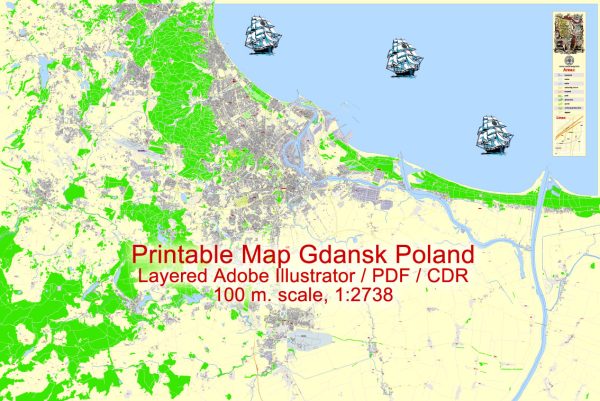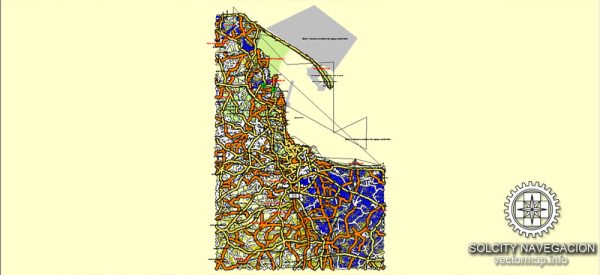Gdańsk, located in northern Poland, is a significant city with a rich maritime history and a strong presence in the maritime industry.
Maritime Industry:
- Shipbuilding: Gdańsk has a long-standing tradition in shipbuilding, dating back centuries. The city is home to several shipyards, including the historic Gdańsk Shipyard, where the Solidarity movement emerged in the 1980s. The shipbuilding industry continues to be a crucial part of Gdańsk’s economy, contributing to both domestic and international ship construction.
- Port of Gdańsk: The Port of Gdańsk is one of the largest and busiest seaports in the Baltic Sea region. It serves as a major hub for international trade and transportation. The port handles a diverse range of cargo, including containers, bulk goods, and liquid cargo. It plays a crucial role in connecting Poland with other European countries and global markets.
- Logistics and Warehousing: Given its strategic location on the Baltic Sea, Gdańsk is a key logistics and transportation hub. The city and its port facilities are equipped with modern logistics and warehousing infrastructure to facilitate the efficient movement of goods.
Transportation:
- Seaport: The Port of Gdańsk consists of several terminals, including container terminals, bulk cargo terminals, and passenger terminals. It facilitates the import and export of goods, fostering economic activities and trade relationships with various countries.
- Transportation Networks: Gdańsk is well-connected by road and rail networks, ensuring smooth transportation of goods to and from the port. The city’s transportation infrastructure is designed to support the maritime industry’s needs and enhance connectivity with the broader European transportation network.
- Air Connectivity: The Lech Wałęsa Airport in Gdańsk provides air connectivity to the city. The airport serves both domestic and international flights, further supporting the transportation of people and goods.
- Inland Waterways: Gdańsk is situated on the Motława River, and its waterways have historically played a role in the transportation of goods within the city. While not as prominent as other modes of transportation, inland waterways still contribute to the overall logistics network.
It’s important to verify this information with more recent sources, as developments in the maritime industry and transportation infrastructure can occur over time. Additionally, changes in policies, economic conditions, and global trade dynamics can impact the status and significance of a city’s maritime activities.



 Author: Kirill Shrayber, Ph.D. FRGS
Author: Kirill Shrayber, Ph.D. FRGS